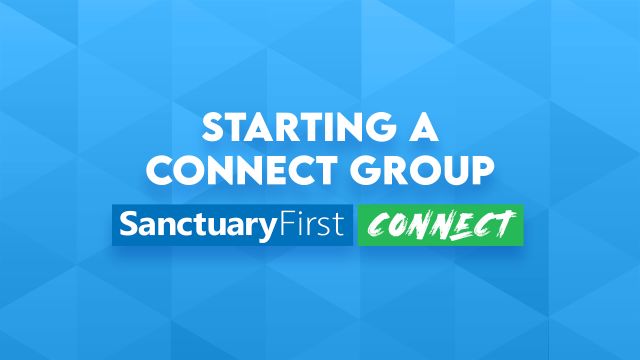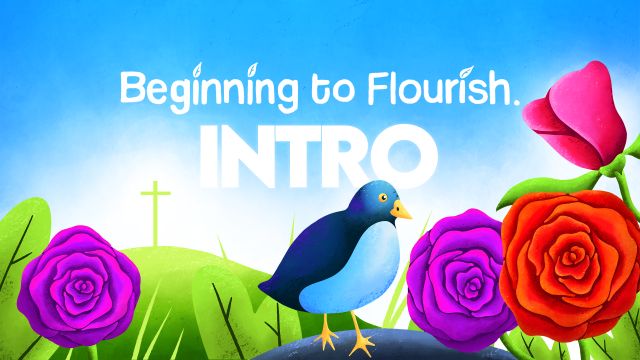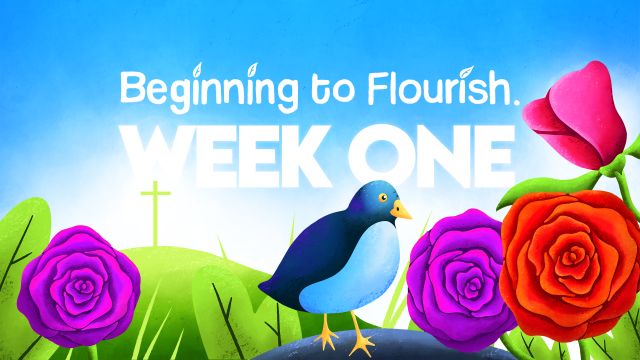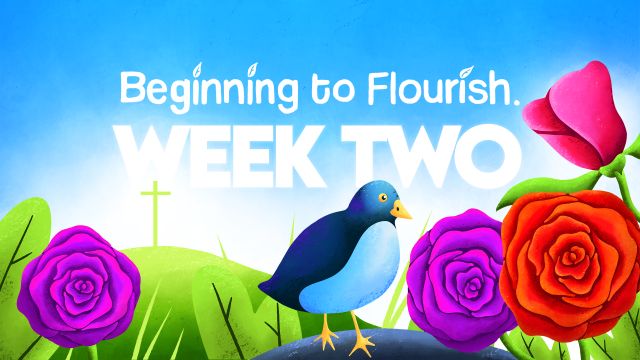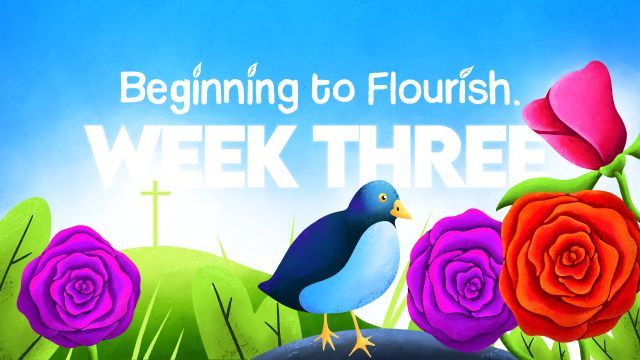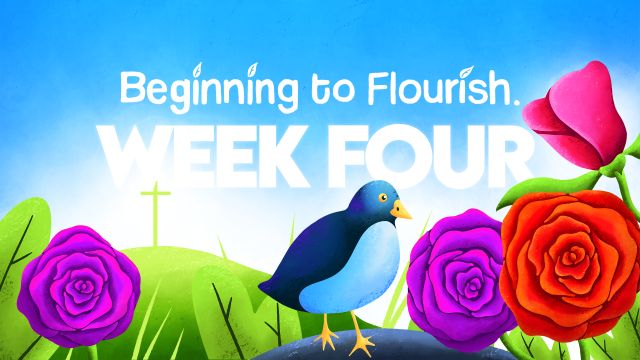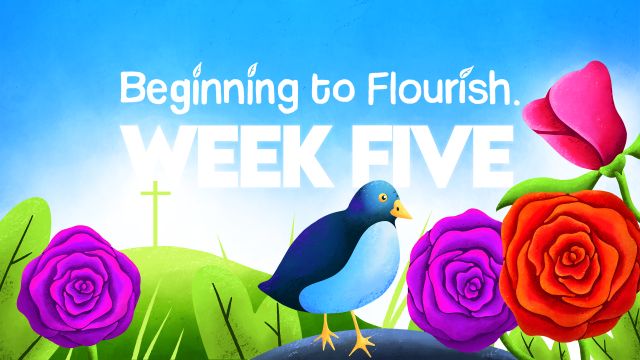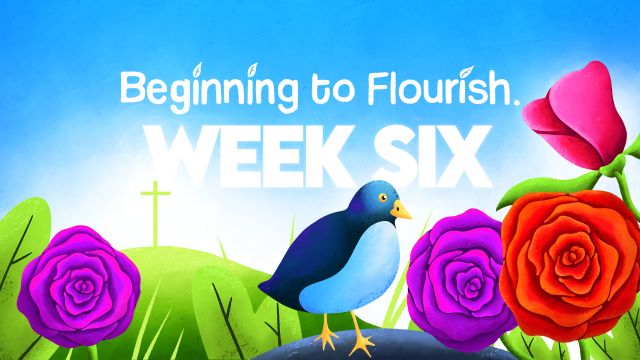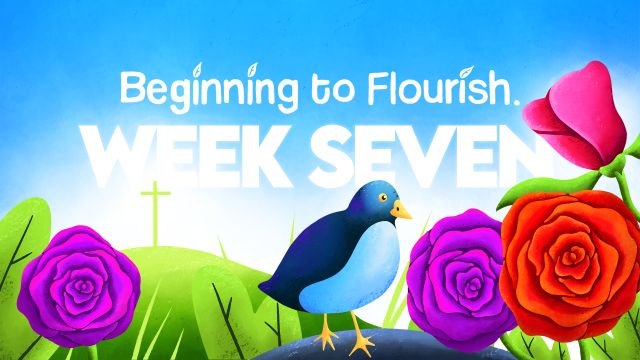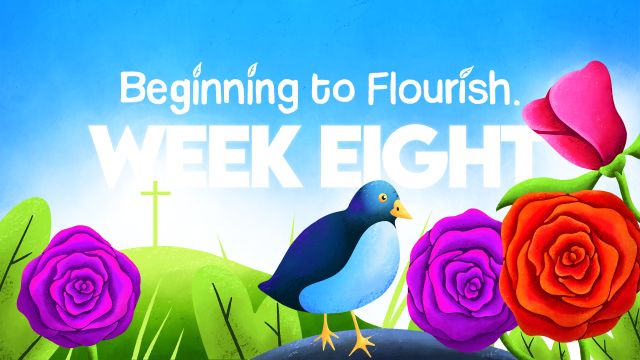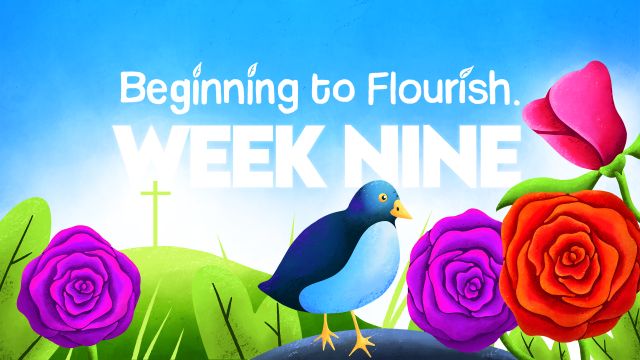Beginning to Flourish - Connect Groups - March/April
What Are Connect Groups?
What are Connect Groups?
 ‘Connect Groups’ is the name we give to small informal gatherings who decide to meet together to explore the Bible alongside our monthly themes. These groups are independent and folk can simply set up their own Connect Group themselves, meeting together with friends and family on their own basis.
‘Connect Groups’ is the name we give to small informal gatherings who decide to meet together to explore the Bible alongside our monthly themes. These groups are independent and folk can simply set up their own Connect Group themselves, meeting together with friends and family on their own basis.
Each month we produce a range of questions to adapt our themes for group discussion. The material is offered as a starting point and there is no need to go through all the questions.You can pick and choose, tailoring it to suit the needs and interests of your group. Each ‘Part’ could form the basis of a weekly roughly 90 minute meeting but you could break it up differently. Let us know if you would like to find out more about Connect Groups and different ways of linking into the Sanctuary First community.
 We all come to the Bible with our own questions, insights and barriers. The guiding principle we have in writing these is to ask questions we don’t already know the answer to! Our hope is to facilitate open-ended discussions. Often the most valuable parts of group chats are the bits that go off on bizarre tangents. And there’s nothing wrong with that. Jesus knows a thing or two about bizarre tangents…
We all come to the Bible with our own questions, insights and barriers. The guiding principle we have in writing these is to ask questions we don’t already know the answer to! Our hope is to facilitate open-ended discussions. Often the most valuable parts of group chats are the bits that go off on bizarre tangents. And there’s nothing wrong with that. Jesus knows a thing or two about bizarre tangents…
Need some advice on starting your own Connect Group?
Get in touch.
Introduction
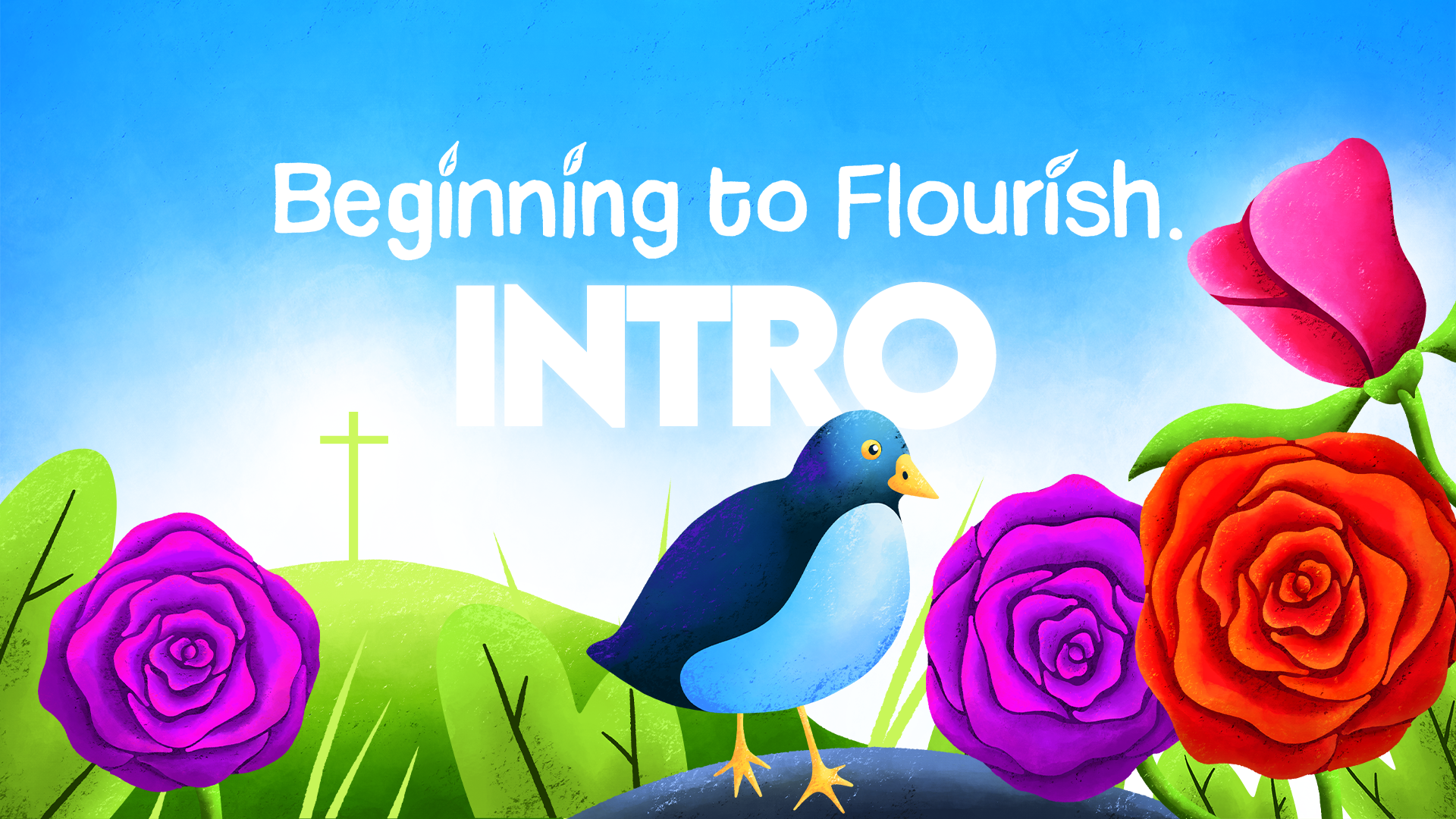
Introduction
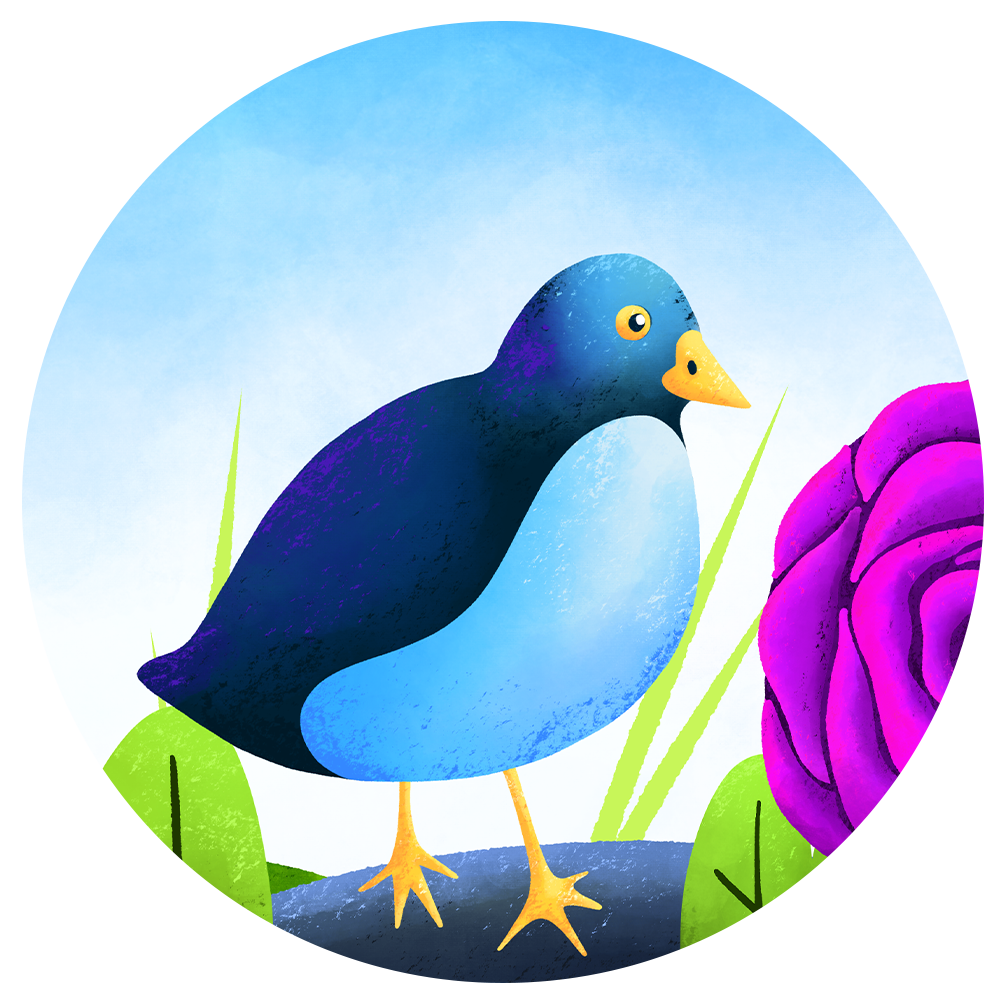 On the cross love was stripped bare. Everything had been taken from Jesus. He had been ripped from his community, deprived of food and water, exposed to the elements, his final breath taken from his body, until all that remained was love. But this love is the transforming love at the heart of the universe — the most powerful thing — the love of God. A love which brings hope and restoration out of despair and suffering — a love freely given so that humanity can flourish!
On the cross love was stripped bare. Everything had been taken from Jesus. He had been ripped from his community, deprived of food and water, exposed to the elements, his final breath taken from his body, until all that remained was love. But this love is the transforming love at the heart of the universe — the most powerful thing — the love of God. A love which brings hope and restoration out of despair and suffering — a love freely given so that humanity can flourish!
Our theme for Lent and Easter 2025 Beginning to Flourish explores the fundamental things we need to live: breath, shelter, water and belonging. In Part 1 ‘What We Really Need’ we travel with Jesus through the wilderness and reflect on how we all share the same basic needs — even Jesus himself did as God amongst us in human form. In Part 2 ‘My Father the Gardener’, as we head into Holy Week and Easter, we will see what happens when love is stripped bare on the cross in an act of incredible compassion and sacrifice only to burst once more into life and hope. God doesn’t just want us to survive he wants us to thrive! We have been created to grow, develop and blossom — rooted in love, branches of the true vine. And in those branches we create room to shelter and nourish one another connected through Christ — ready to flourish.
PART 1 : What We Really Need
The first part of Lent: from the week beginning Sunday 2nd March to the week beginning Sunday 23 March.
Life is so complicated until it isn’t — until it’s just about the next breath, some clean water, somewhere to stay, or a community to belong to. That gasp of air, that cold glass of water, that roof, that place you can simply be. What do we learn about our God from breathing deeply? Or from catching our breath? How about when we quench our thirst? Or when we feel safe? Or from when we lose that sense of security? As Jesus fasted in the desert wilderness, surely a dry and unforgiving place, these needs would have been on his mind. He was fully divine but yet — incredibly — also fully human.
Jesus speaks with authority in our lives as one who knows what it is to fight for breath, to long for water, to be without a permanent address, to find oneself forsaken, betrayed and abandoned. But he also knows what it is to laugh, to drink in celebration, to share hospitality, and form lasting friendships.
What can we discover about our God and ourselves when we take things down to the basics and consider our most fundamental needs?
- A sudden intake of breath — animated for expressive life
- Sheltering together — welcomed by God
- Thirsting after — the physical and spiritual intertwined
- Really belonging — being acknowledged, recognised, celebrated
PART 2: My Father The Gardener
The concluding part of Lent and into Easter: from the week beginning Sunday 30th March to the week beginning Sunday 27th April.
God has given us within ourselves, within our friendships, within our communities, within our world — the means to live and to live productively and creatively. Who we are and the choices we want to make matter. We are not just cogs in a machine or workers in a hive. We are individual and idiosyncratic. There has never been and there never will be someone just like you with your combination of personality and experience and genetics. You are a unique creation and God wants you to live but also to feel fulfilled in that life — able to blossom into the fullest version of you.
From the shoots that grow in and amongst the rubble and hard ground of desperate need to the copious fruit of the groaning branches of the overspilling vineyard, our God cares for us and nurtures us. When love was stripped bare on the cross — when one by one Jesus was torn from his community, pulled from shelter, deprived of water, and ultimately his breath — it was not the beginning of the end, it was only the end of the beginning. In God’s eternal love are the seeds of our flourishing.
The journey can be seasonal and cyclical with times of growth and then times of pruning back. We might flourish for a time before finding ourselves back to first principles for a season. Times of bearing fruit and times of lying fallow. But through it all our Father the Gardener never abandons us, caring despite everything so that we survive, thrive and flourish, even becoming apprentice gardeners ourselves.
It’s time to flourish…
- Gardener and Baker — the Bread of Life
- Longing and everlasting love — a well watered garden
- Love stripped bare — on the cross
- Jesus the Vine — becoming branches ourselves
- Flourishing Together — reflecting on living so that all may flourish
As part of our Lent reflections this year we are encouraging one another to take on a Lent Transformation each week. These disciplines are inspired by our rich Christian heritage and offer simple, straightforward ways of settling the heart, stilling the mind, and focusing our thoughts.
They invite you to to do one thing every day for each week, the idea being that repetition allows you to build on the experience, noticing new things each day. If you forget or miss a day don’t worry, just start again on the next day. Our hope is that by repeating the exercises you make space for rest, calm and new insights. Lent is an important time in the church calendar to slow down and make time to focus our minds on God.
Download the Discussion Questions as a PDF
These discussion questions adapt our monthly themes for small Connect Groups or personal Bible study. The questions are divided into 4 parts to correspond with the 9 weeks of the Daily Worship theme. They are offered as a guideline and there is no need to go through all the given questions in a single session, or in the following sequence. Feel free to pick and choose, or adapt to what interests you or your group.
This is a theme remix revisiting and reimagining material we first developed in 2020.
Find how to get involved: Connect group Blog
Week One
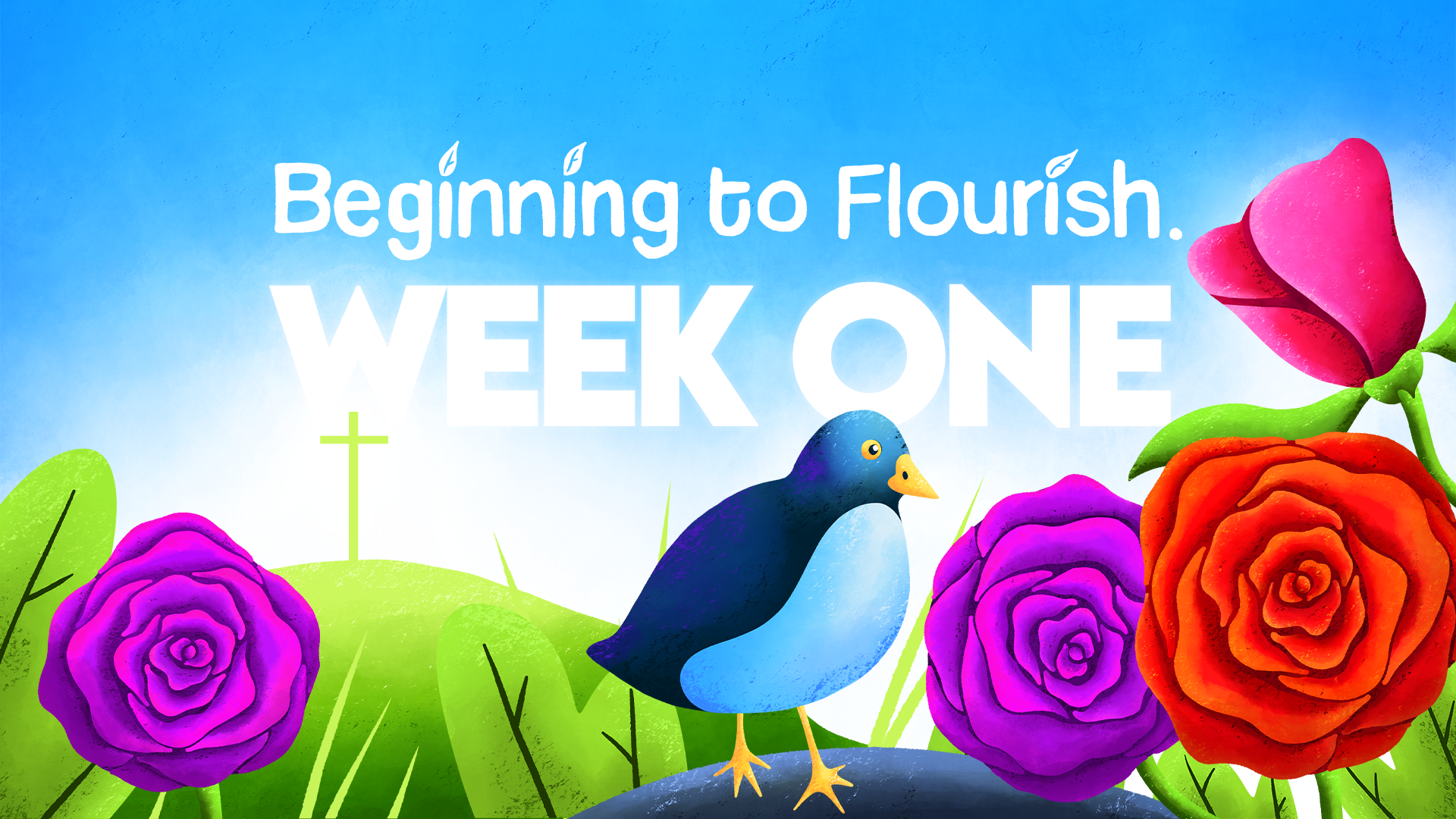
A sudden intake of breath — animated for expressive life
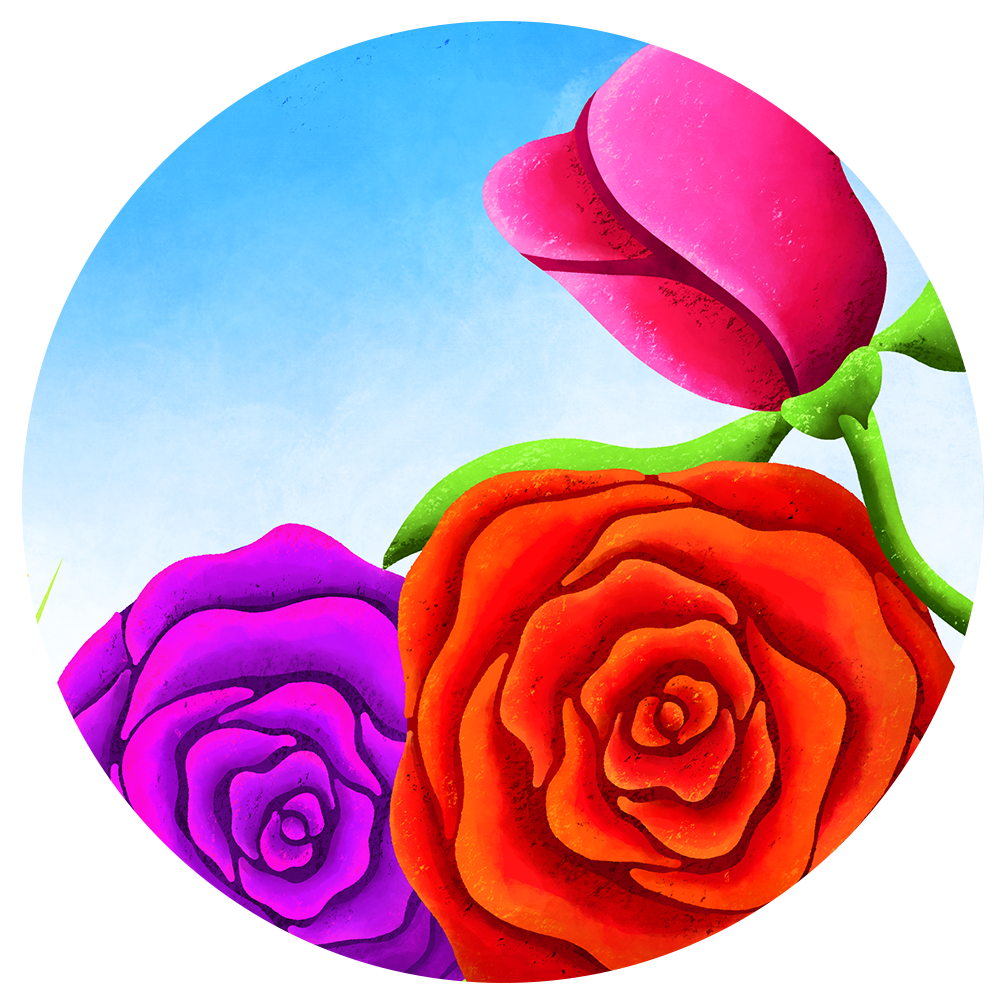 Breathing is one of our most vital needs, absolutely essential to life. It powers us through the day and often reveals our emotions. It can be smooth or ragged, deep or shallow, sudden or slow. Breath can be a form of nonverbal communication between people signalling to others how we are doing and what we are thinking. This week we will consider the animating principle of breath that carries us through our days — from hearty laughter to deep sobs, from the gentle sigh of relief to the deep gulps that get us up a massive hill. This Lent we also anticipate the cross and remember the final incredible breath of Jesus, “It is completed.”
Breathing is one of our most vital needs, absolutely essential to life. It powers us through the day and often reveals our emotions. It can be smooth or ragged, deep or shallow, sudden or slow. Breath can be a form of nonverbal communication between people signalling to others how we are doing and what we are thinking. This week we will consider the animating principle of breath that carries us through our days — from hearty laughter to deep sobs, from the gentle sigh of relief to the deep gulps that get us up a massive hill. This Lent we also anticipate the cross and remember the final incredible breath of Jesus, “It is completed.”
Seeds to sow: This week think how you can support individuals and the work of organisations that help people living with chronic illnesses.
Read Genesis 2: 7
Breath brings life.
“…and blew into his nostrils the breath of life. The man came alive – a living soul!” (The Message) Here and repeatedly through Scripture we are reminded that God is the giver of breath. Life is a gift from God, God breathes on us and we receive that life. We often take our breathing for granted until we are gasping for air. Sometimes we are holding our breath without realising and only notice when we are suddenly breathing again.
Q: What are the things that make you come alive?
Q: What are the activities and experiences that you find encouraging and life-giving?
Read Acts 9: 1
Breathing murder!
In the rest of Acts 9 the conversion of Saul is described by Luke. but right at the start we are confronted with Saul “breathing out murderous threats against the Lord’s disciples.” Our breath is such a vivid indicator of how we are feeling. It communicates non-verbally but clearly to the world our emotions. We naturally recoil from the ragged murderous breath of Paul here, because we easily recognise it.
Q: What is our prayer today into situations of bullying, oppression, persecution and abuse?
Q: When we see these things happen, how will we respond to bring about justice and bring them to an end?
Read Exodus 2: 23-25
God, creator of the universe, takes notice of you.
How often, perhaps without even noticing it, do we use our breath to call out to God in prayer? God the Creator of the universe has given us breath. In our very breathing we are in daily communion with God. God hears our everyday sighs, snorts and murmurs. Whenever we speak God is there, attentive to our breath. For God’s people in our reading, it was their cries and groaning in slavery. Isn’t it incredible that God takes notice, not just of what we say — but how we breathe and how we carry ourselves? God has breathed into you to give you life and God does not waste his breath. God is always part of our communication for our very speech is born on his breath.
If God already knows all that we are thinking and feeling why do we still take time to pray?
Lent Transformation Week 1
The Transforming Breath
Each morning this week spend 5 minutes mindful of your breath, perhaps breathing slowly in and out. As you do this, consider the day ahead and think of all the places and situations your breath is going to take you today. Think of all the words that will be carried on your breath. How can your words bringing about flourishing and new life? You may wish to say a short prayer offering the upcoming day to God.
Week Two
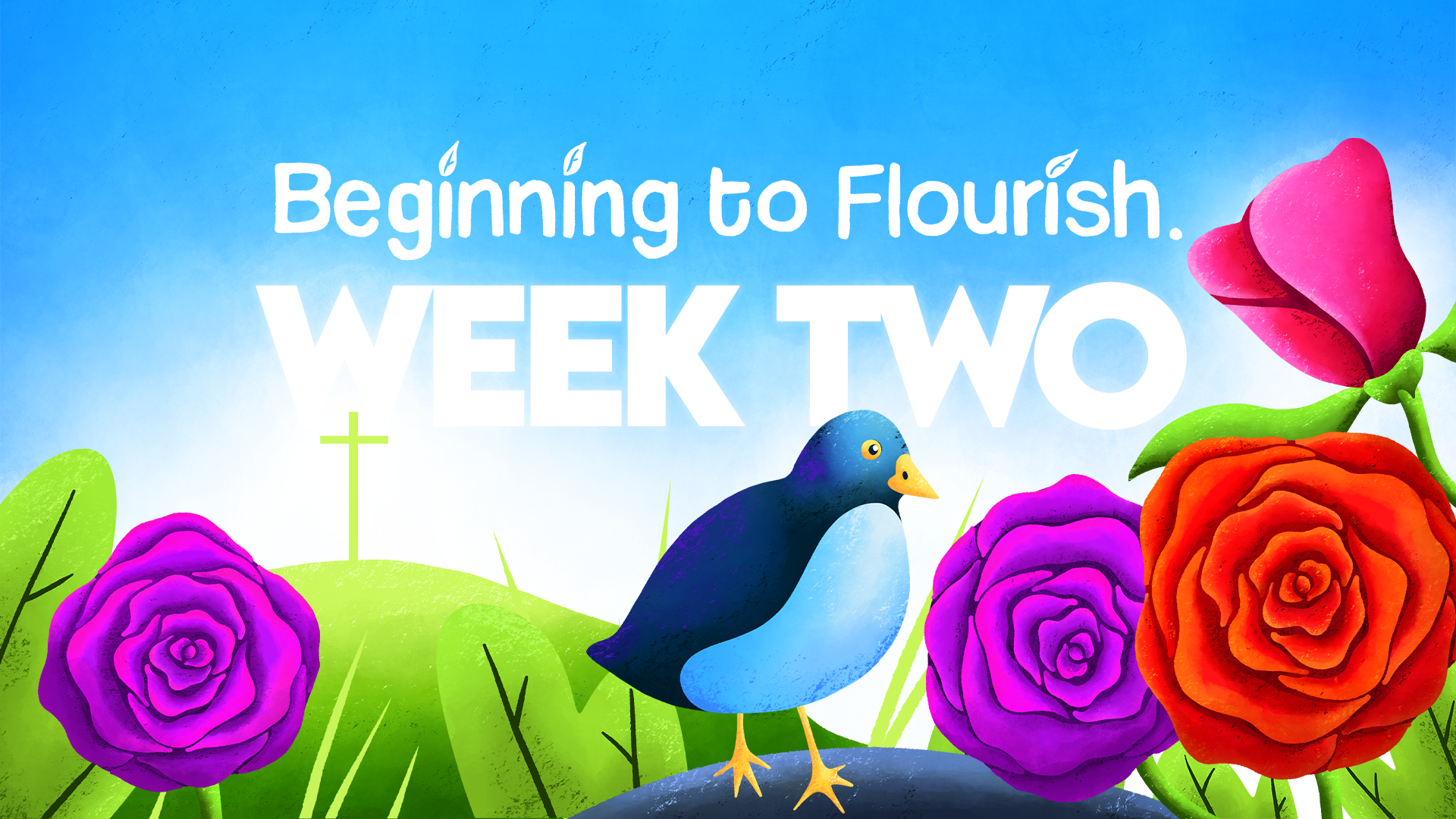
Sheltering together — welcomed by God
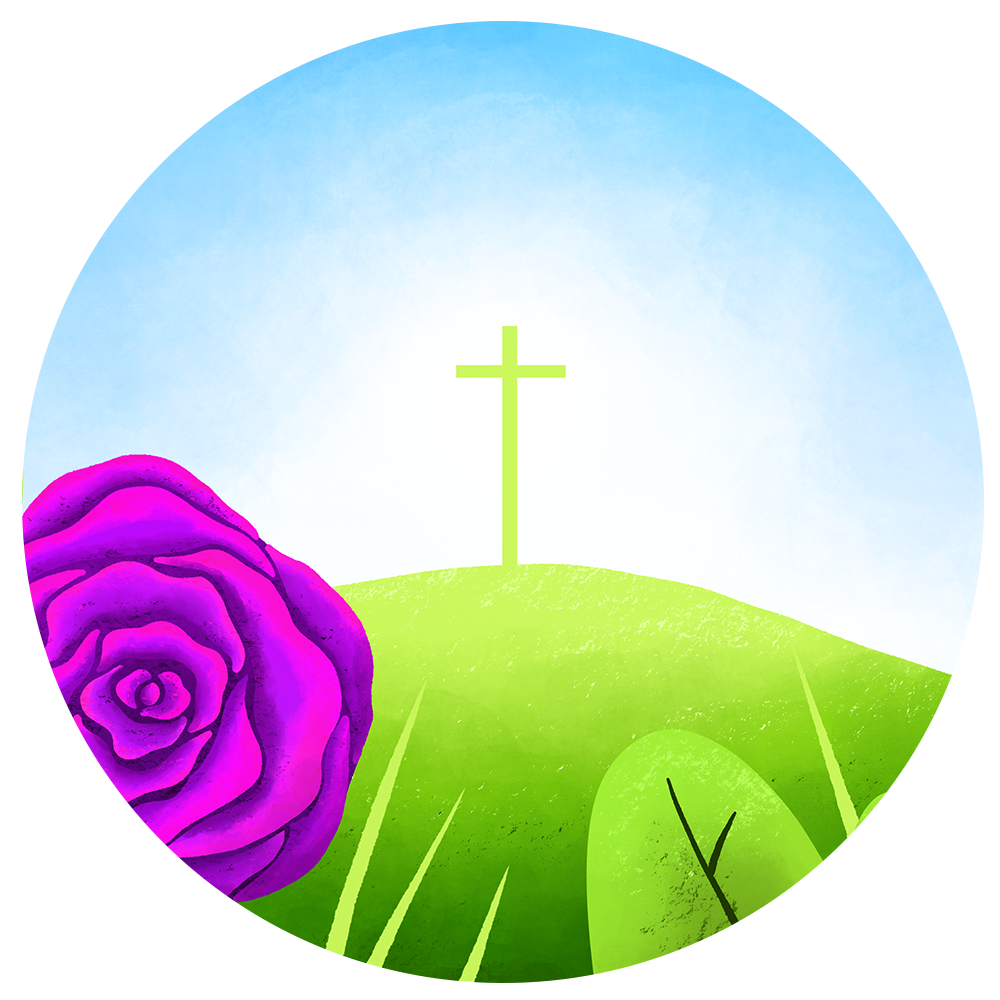 The desire for a roof runs deep. We all need somewhere to lay our head. We need protection from the elements, but also somewhere we can let down our guard, feel safe and sound. Stress about a lack of shelter, or the quality or security of that shelter gets to us like little else does. This is why shelter makes for such a powerful metaphor of God’s love for us. Even when every other shelter has let us down, or fallen through, or kicked us out — God still welcomes us.
The desire for a roof runs deep. We all need somewhere to lay our head. We need protection from the elements, but also somewhere we can let down our guard, feel safe and sound. Stress about a lack of shelter, or the quality or security of that shelter gets to us like little else does. This is why shelter makes for such a powerful metaphor of God’s love for us. Even when every other shelter has let us down, or fallen through, or kicked us out — God still welcomes us.
SEEDS TO SOW: This week consider how you can support individuals and organisations that work to provide shelter and support to those who need it.
Read Genesis 12: 1-4
Leaving shelter.
Shelter provides a comfort zone for our protection and security. What if God called you like Abram to leave those comfort zones and the luxuries of your shelter to follow him. Abram was called from his country, his people and his family to follow a vision with no guarantee, save that God would be with him.
Take time to share with others the places where you have lived and how it has affected you. Could God have called you to these places? Where will be your next stop in God’s schedule?
Read Psalm 27
One thing I ask from the Lord…
Consider the positive statements about the provision of the Lord in the psalm. How can we express thanks to God for the way he provides for us?
What do you think it means to “dwell in the house of the Lord all the days of my life”? (See verse 4.)
Read Isaiah 58: 4-12
Shelter as a shared resource.
So often the focus today is on ourselves and making sure that we are okay. Isaiah’s challenge is not about self but about others.
Identify in the passage the things we are challenged to share together rather than hoard for ourselves. The Christian life is not an individual life but a collective life.
What resources could you share better with others, including shelter?
Lent Transformation Week 2
The Transforming Shelter
Think about your local area/town/city and reflect on the people living near you who could be struggling or suffering, who perhaps can’t rely on their shelter or accommodation.
Commit to pray for your neighbourhood and those same people every day this week.
Week Three
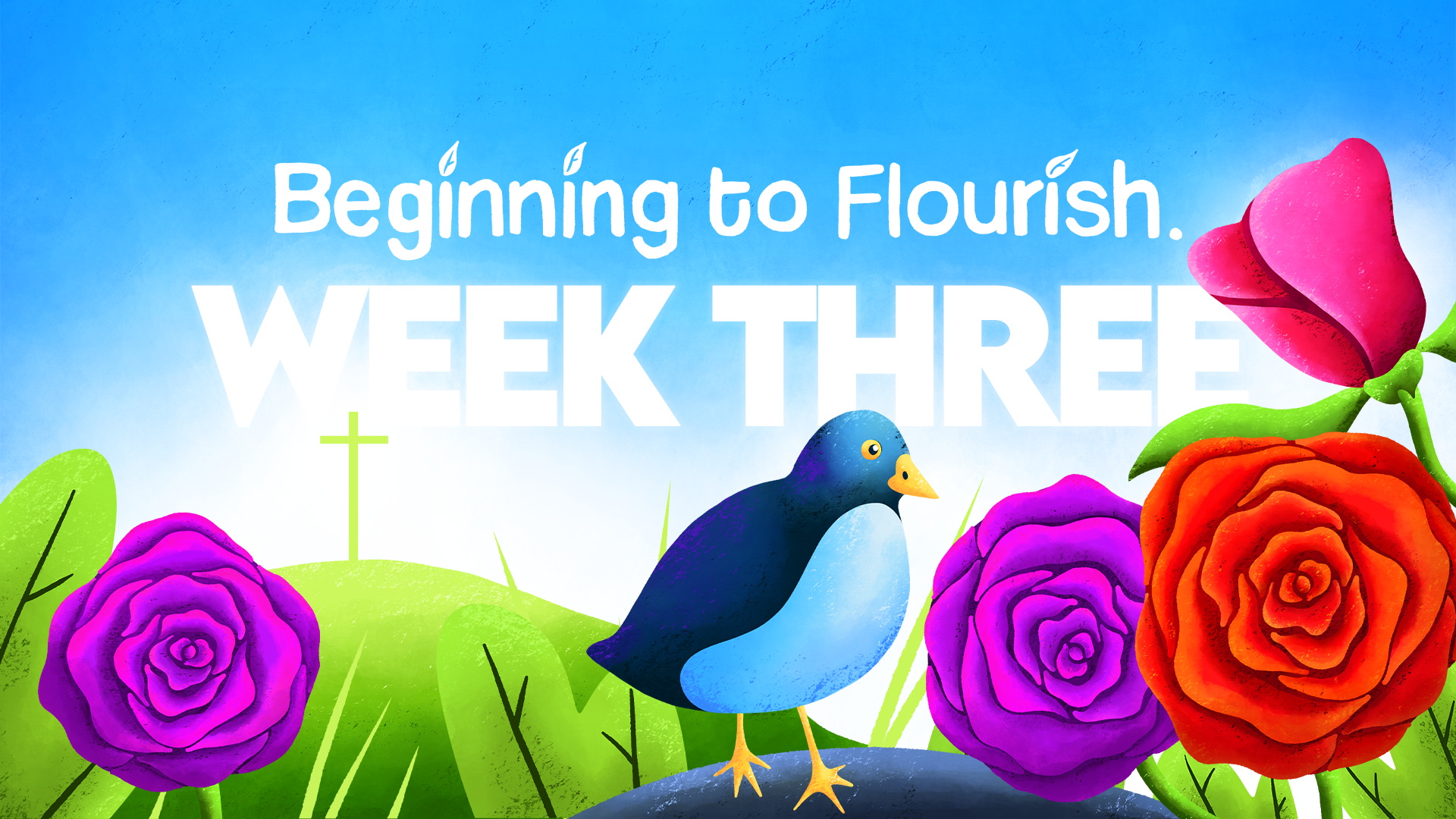
Thirsting after — the physical and spiritual intertwined
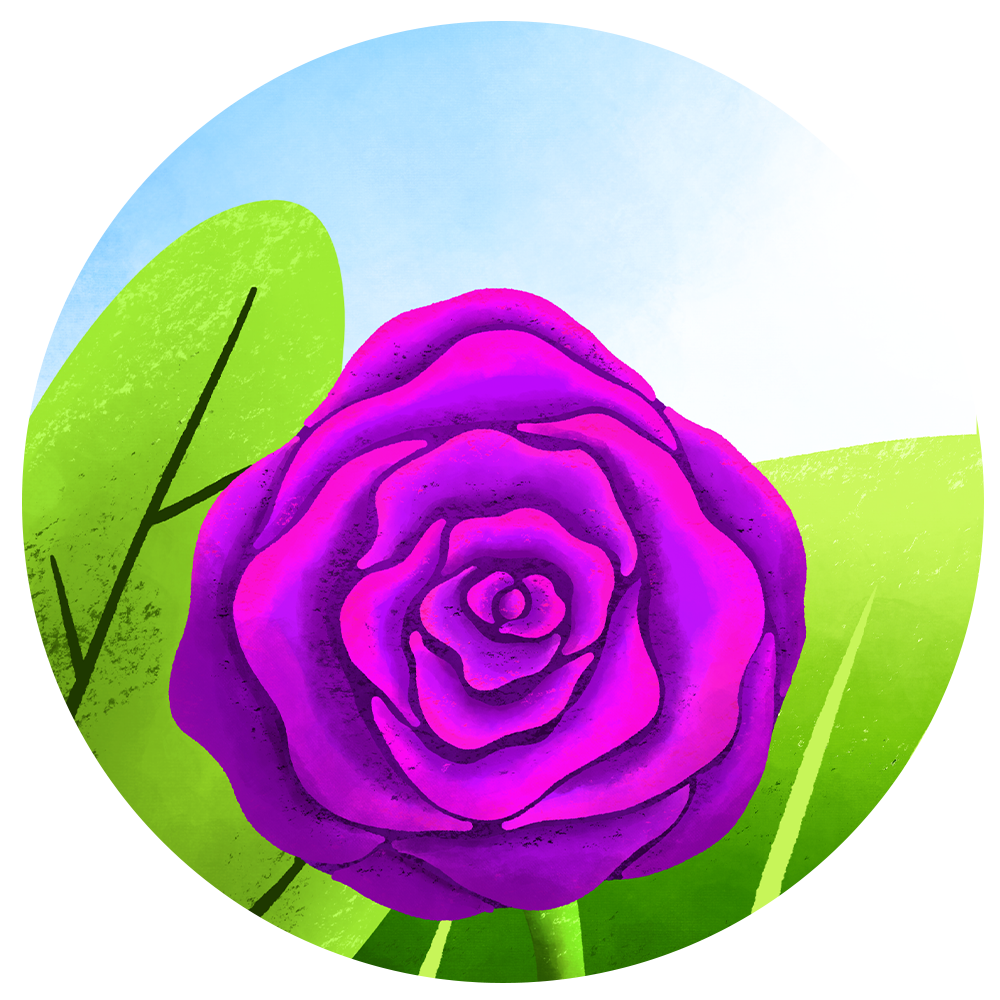 Thirst is one of the most pressing forces in our lives. Needs like breathing, for most of us, are so automatic we rarely think about them unless we are in an emergency. Others like the need for shelter and belonging are crucially important but are often taken for granted until they are absent; but our thirst is a pressing need we negotiate every day that can override everything else. It can be hard to relax, concentrate, or even complete basic tasks when our thirst is overwhelming us. Our need to drink is a constant reminder of our bodies and their precious vulnerability. We will explore what it is to thirst spiritually and physically. This week we will explore the incredible encounter between Jesus and the Samaritan Woman at the well in John’s Gospel.
Thirst is one of the most pressing forces in our lives. Needs like breathing, for most of us, are so automatic we rarely think about them unless we are in an emergency. Others like the need for shelter and belonging are crucially important but are often taken for granted until they are absent; but our thirst is a pressing need we negotiate every day that can override everything else. It can be hard to relax, concentrate, or even complete basic tasks when our thirst is overwhelming us. Our need to drink is a constant reminder of our bodies and their precious vulnerability. We will explore what it is to thirst spiritually and physically. This week we will explore the incredible encounter between Jesus and the Samaritan Woman at the well in John’s Gospel.
SEEDS TO SOW: This week consider how you can support individuals and organisations that help people around the world access clean life-saving water.
Read Psalm 42: 1-2
As the deer…
Can thinking about our physical thirst help us to better understand our spiritual thirst… “My soul thirsts for you, my God.” What does your soul thirst for? We thirst for all sorts of things art, beauty, friendship, goodness. What does it mean to thirst for the Lord in these experiences?
Read John 4: 5-29
Quenching our thirst.
There are so many layers to this passage in John’s Gospel. His human nature was very clearly displayed as he asked the Samaritan woman for water but his divine nature was shown when he offered himself to her as the living water every human needs to survive spiritually.
The cultural tension between a religious teacher and a woman whose faith and morality was suspect all adds to the inclusive way Jesus deals with people. He is not afraid to ask her for help.
What strikes you or intrigues you about this story? Imagine you got to speak to the Samaritan woman afterwards. If you could send her a text what would you ask her about this encounter?
Read John 4: 39-42
Water travels…
The most frustrating thing about a water leak in a house is trying to work out its source, because water travels, not in the most obvious route, but in the direction of least resistance. We read in this passage that many Samaritans believed in God through the testimony of this woman.
Where do you think the Gospel message encounters least resistance?
Lent Transformation Week 3
The Transforming Refreshment
Make time every day this week to thank God for the drink you are drinking. Think about how Jesus lived a human life and regularly drank with others. Give thanks for the drinks you have and the chances you have to share them with others.
Week Four
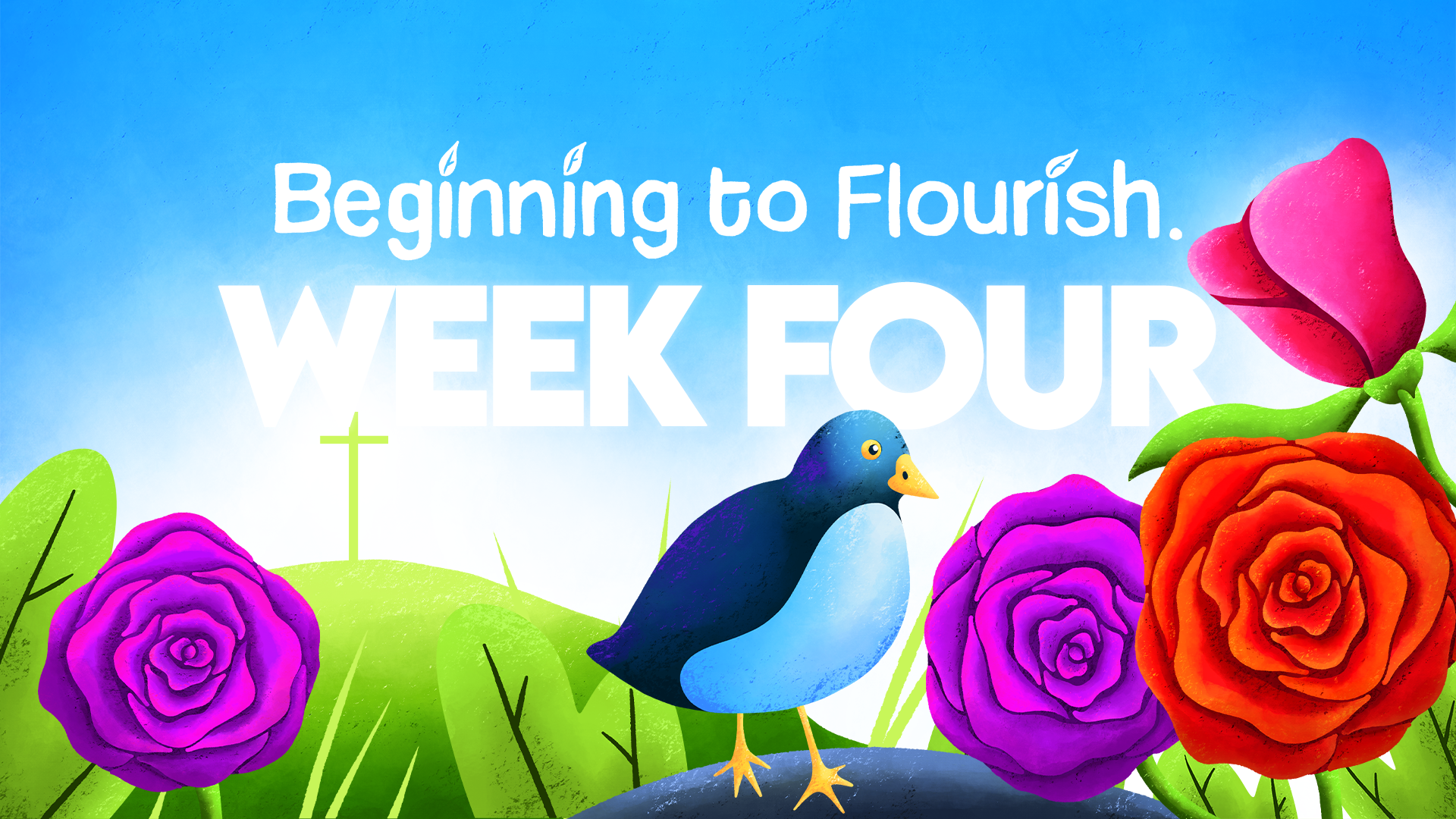
Really belonging — being acknowledged, recognised, celebrated
 We need to breathe, we need shelter, we need water… but we also need to belong, we need to feel acknowledged, recognised, even celebrated. Many people — who can breathe easily, have plenty to drink, and secure homes to live in — suffer intolerably for not having a sense of belonging. And many who struggle to breathe, or to find proper shelter, or clean water, still feel the warmth of belonging. God always acknowledges us, recognises us and celebrates us, because we belong!
We need to breathe, we need shelter, we need water… but we also need to belong, we need to feel acknowledged, recognised, even celebrated. Many people — who can breathe easily, have plenty to drink, and secure homes to live in — suffer intolerably for not having a sense of belonging. And many who struggle to breathe, or to find proper shelter, or clean water, still feel the warmth of belonging. God always acknowledges us, recognises us and celebrates us, because we belong!
SEEDS TO SOW: This week consider how you can support individuals and organisations that work to counter isolation and loneliness.
Read Isaiah 55: 1-9
Come for the drink stay for the belonging!
A core part of belonging somewhere is feeling acknowledged — that you are noticed and that your needs are recognised. This is true spiritually as well as socially.
When and where have you felt most welcome in your life? How can these experiences shape how we do shared worship together?
Read John 9: 1-41
Depends how you see it…
The values we stand by often shape the groups we belong to and we are uncomfortable when those value systems are challenged or changed. The Pharisees were uncomfortable with what Jesus was doing. Their sense of belonging was being disrupted.
How do we ensure that even when our Christian values are disruptive to a community that all people still feel acknowledged and like they can belong?
Read Ecclesiastes 4: 9-12
Working together.
“A cord of three strands is not quickly broken.”
The Trinity is a most beautiful image of belonging with the relationship between the Father, Son and Holy Spirit. Belonging and being part of something is so important for us. We are not created to be on our own and the Trinity as a Community of love reflects that.
What happens to people who have become spiritually homeless within the church? Who, for any number of reasons, no longer find themselves at home in a Christian community?
Now, take each part of this passage and use it to think about can we support lonely and isolated people. Apart from praying how can we support those who long for a sense of belonging?
Lent Transformations Week 4
The Transforming Community
Every day this week read Hebrews 10: 24-25. After reading those two verses consider what you can do today to spur on others to love and goodness.
Week Five
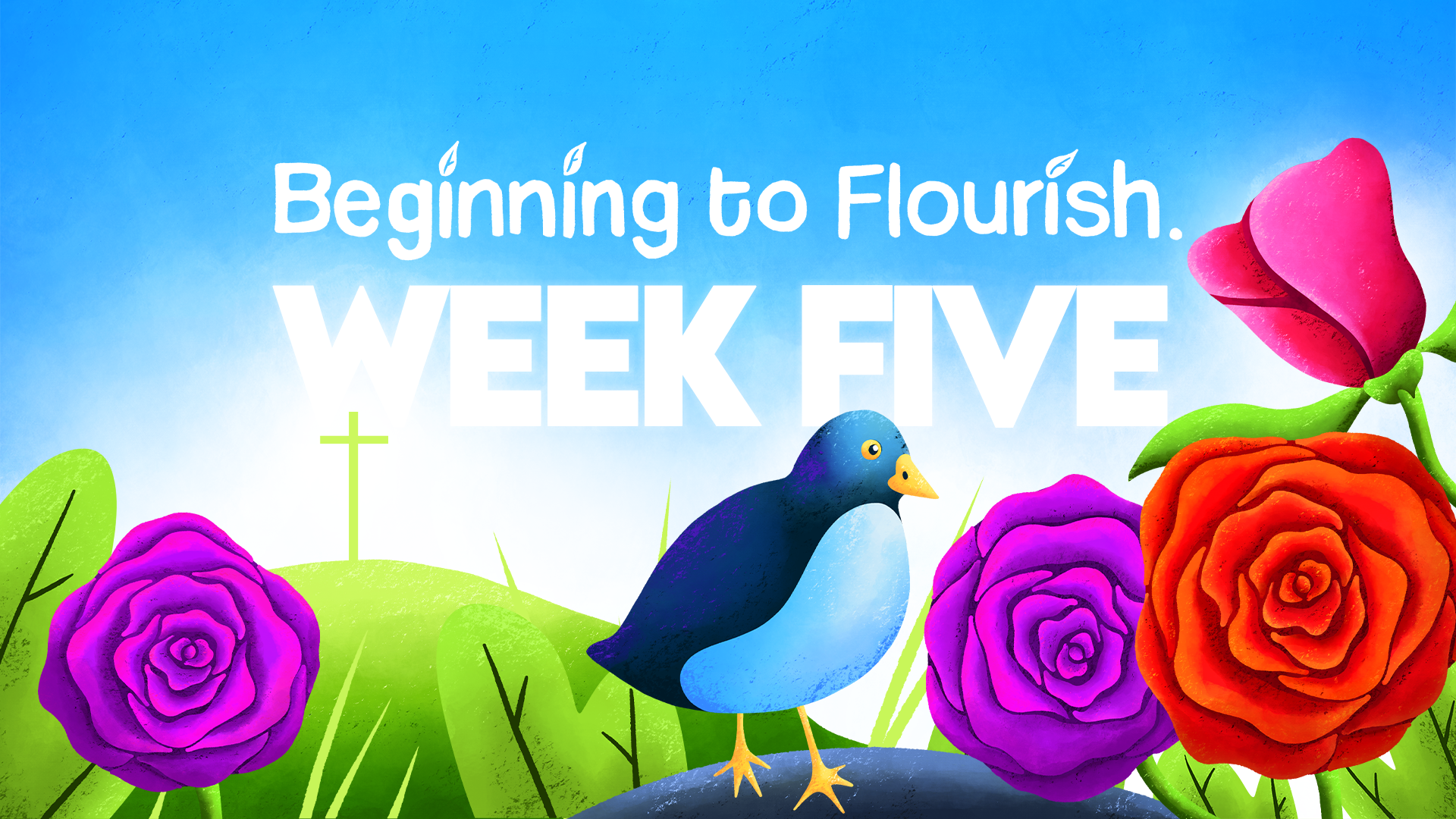
Gardener and Baker — the Bread of Life
 This week we are going to think about the Bread of Life. Bread is hugely important throughout history and across the world, in various forms. It is both an everyday staple and a special symbol of sustenance itself. Just as bread is worked and proved and animated — so are we. So bread is a metaphor. Bread is a story. But bread is also of course — food.
This week we are going to think about the Bread of Life. Bread is hugely important throughout history and across the world, in various forms. It is both an everyday staple and a special symbol of sustenance itself. Just as bread is worked and proved and animated — so are we. So bread is a metaphor. Bread is a story. But bread is also of course — food.
SEEDS TO SOW: This week consider how you can support individuals and organisations that work to alleviate hunger and scarcity — both locally and internationally.
Read John 6: 25-59
The Bread of Life.
It is with bittersweetness that we link this Bread of Life to the last supper to come in Holy Week when love will be stripped bare on the cross.
What words leap out to you in this reading? What are you drawn to think about more?
Jesus’ choice of bread and wine as the symbols he wished to be remembered by are rich in meaning to explore. Both need time to mature and grow into something that looks completely different from what is planted.
Have you ever tried making bread, if so how did it go? As well as taking time to mature and develop — what are other things that human beings and loaves of bread have in common?
Read Romans 8: 6-11
The active agent within.
The most common yeast generally associated with winemaking is Saccharomyces cerevisiae which is also used in bread making. The way Paul describes the Holy Spirit could be likened to spiritual yeast working in the background bringing life and vitality to the human heart. Yeast disrupts and agitates the dough — making it rise!
When we feel discontent and uneasy with the status quo — that is the Holy Spirit working through us, enlivening us to bring about change in our communities and culture.
What do you feel discontent about in the life of the church and the world today?
Read 1 Kings 17: 7-16
You can never get enough of fresh bread! How could we use fresh bread this week to show God’s generosity and compassion?
Lent Transformations Week 5
The Transforming Bread
Our Creator God has created a creative humanity able to create amazing things: from a loaf of bread to an oil painting, from a tall tower to a cosy woolly scarf! Each day this week take a short amount of time to "make something". Interpret "make" however you like — make a loaf of bread or make a picture, make a start sewing or knitting something and work on it every day. Perhaps your making is "making time for someone" or "making a difference in your neighbourhood".
Get creative — the key is to make something (or make something happen) that wouldn’t otherwise).
Week Six
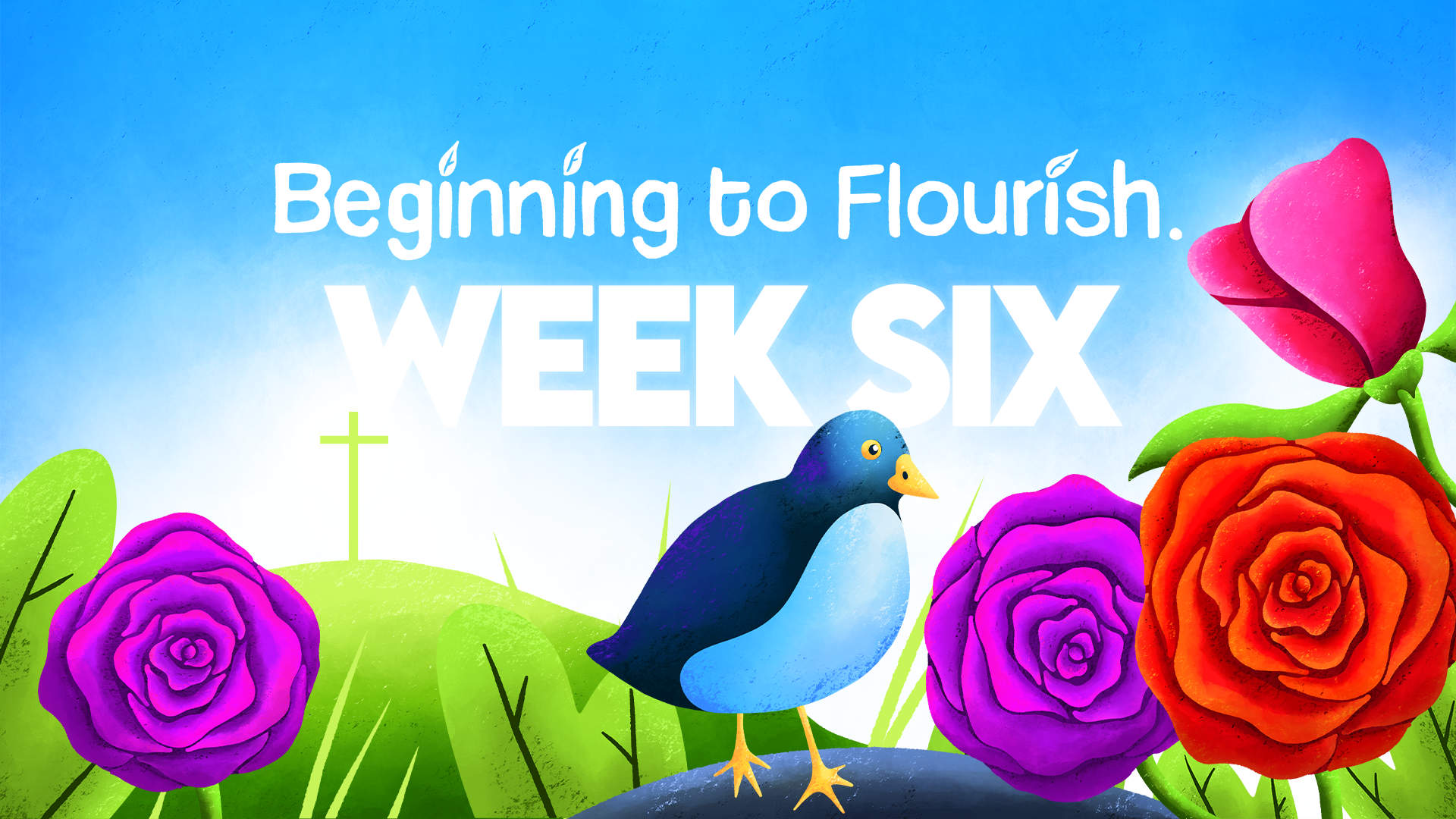
Longing and everlasting love — a well watered garden
 This week we are travelling through the vivid picture of return and renewal drawn in Jeremiah 31: 1-14 with its well watered garden. Deep in the human heart is a longing that’s almost impossible to answer, almost impossible to fulfil. In God and through God we find something big enough and wide enough to answer — everlasting love. It is this love that will sustain Jesus through Holy Week, the cross, and the tomb, to resurrection!
This week we are travelling through the vivid picture of return and renewal drawn in Jeremiah 31: 1-14 with its well watered garden. Deep in the human heart is a longing that’s almost impossible to answer, almost impossible to fulfil. In God and through God we find something big enough and wide enough to answer — everlasting love. It is this love that will sustain Jesus through Holy Week, the cross, and the tomb, to resurrection!
SEEDS TO SOW: As a gardener works to create a system of mutually supporting life growing together — how can we support a myriad of environmental organisations working to heal our world for all to thrive?
Read Jeremiah 31: 1-6
Rest, rebuilding, and replanting.
We have drawn several words beginning with R throughout this beautifully compelling reading, the first three are rest, rebuilding and replanting.
What is the relationship between rest, rebuilding and replanting? Both in this passage and in our everyday lives?
Read Jeremiah 31: 7-14
Returning, restoration and redeeming.
Our next three are returning, restoration and redeeming. What is the relationship between returning, restoration and redeeming? Both in this passage and in our everyday lives?
Read John 12: 1-8
Surprising gift.
Now we hurtle from the Old Testament forward to the first century and this incredible scene.
How do we read it in the context of Jeremiah 31?
In Holy Week Jesus is about go into another wilderness, everything is going to be stripped away from him as love is stripped bare — belonging, shelter, water and finally his breath — but the one thing that isn’t taken away from him his everlasting love
Where do we see the same themes of rest, rebuilding, replanting, returning, restoring and redemption in this reading? How would the scent of the perfume have lingered with Jesus through the week ahead?
Lent Transformations Week 6
The Transforming Garden
Take some time every day this week to appreciate living things in the natural world.
Then after doing so think of one thing you can do to tend for our beautiful world.
Week Seven
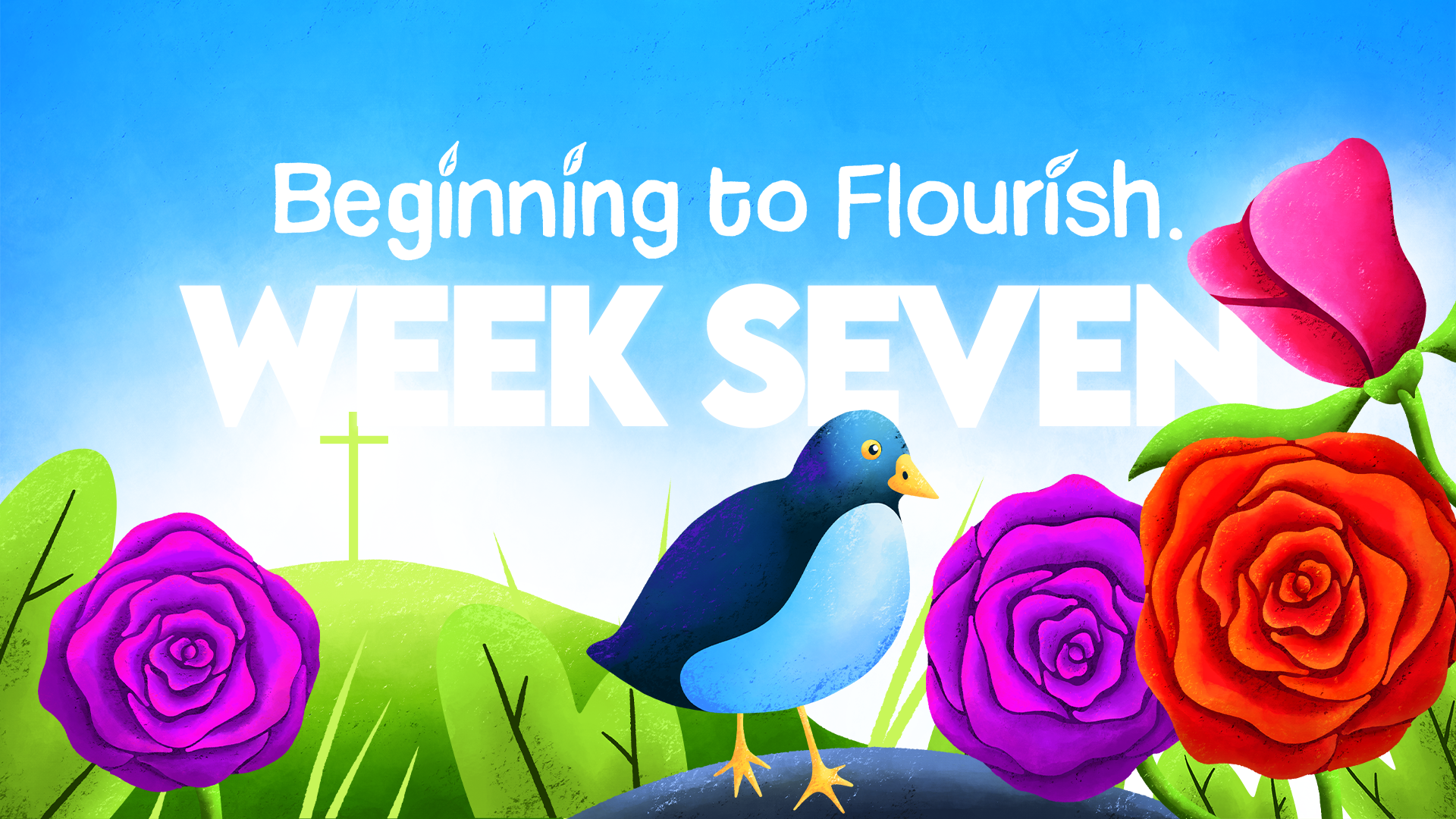
Love stripped bare — on the cross
 At the beginning of Lent Jesus went into the wilderness and in Holy Week Jesus is about go into another wilderness, everything is going to be stripped away from him — belonging, shelter, water, and finally his breath — but the one thing that isn’t taken away from him his everlasting love. Betrayed, rejected and suffering but because Jesus is loved by the Father — he and the Father are one — he can rebuild love in the human heart. The one thing that cannot be taken away from him is his identity and his identity is love.
At the beginning of Lent Jesus went into the wilderness and in Holy Week Jesus is about go into another wilderness, everything is going to be stripped away from him — belonging, shelter, water, and finally his breath — but the one thing that isn’t taken away from him his everlasting love. Betrayed, rejected and suffering but because Jesus is loved by the Father — he and the Father are one — he can rebuild love in the human heart. The one thing that cannot be taken away from him is his identity and his identity is love.
SEEDS TO SOW: This week consider how you can support Christians facing oppression and hostility around the world.
Read Isaiah 53
Suffering servant.
A heartbreaking picture of love brought to its knees. When Jesus takes on our pain and sorrow and rejection it is with the voice of experience. Jesus speaks to us as one who knows what it is to fight for breath, to long for water, to be without a permanent address, to find oneself forsaken, betrayed and abandoned.
What words or phrases stand out for you in this reading?
Read Luke 23: 32-43
Love whispers.
Even as love is being stripped bare it manages a whisper as Jesus invites another suffering man to paradise.
In the incredible weakness of love stripped bare… love’s strength blazes — reaching out in the laboured breaths of agony to another thirsting soul.
The Bible doesn’t tell us how the thief replied or if he did at all. What do you think the thief could have said in response to this incredible invitation?
Read John 19: 28-30 & Luke 23: 47-49
Final drink, final breath.
The essential needs that unite all humanity, that we looked at in the first half of our theme, are one be one taken from Jesus. He has been ripped from community, he is without shelter, without sustenance. Love is stripped completely bare. But in the hollow of this searing loss we remember the resurrection to come that will return these things to Jesus, as love triumphant will have the final word.
At the heart of the cross is the message that love can be stripped bare — but it cannot be defeated. Love on the cross stripped back to the suffering servant —God as man come amongst us to walk our road — will overcome all.
The armour of the Roman centurion, in the Luke reading, is no defence against love stripped bare as he takes in all that has happened. The tomb with its giant stone is no defence against love stripped bare. Death itself has no defence against love stripped bare. Our own experiences of pain, sorrow, and shame ultimately have no defence against love stripped bare.
What is our prayer that all might know the power of this transforming, redeeming love?
Lent Transformations Week 7
Love Stripped Bare
The Son of God became one of us and had a human body. Just as we are united by our breath, thirst, search for shelter, and need for belonging — so was Jesus, God amongst us.
Every day this week take a moment to consider the human life of Jesus and then come to God in a short time of prayer.
Sunday: reflect on the everyday breaths of the everyday family who brought Jesus up. The laughter, cries, cheers, sobs and sighs.
Monday: reflect on the festivals and speciall occasions Jesus would have shared with family and friends.
Tuesday: reflect on the various shelters that would have provided respite, protection and shade for Jesus, in his very human skin.
Wednesday: reflect on the friendships Jesus would have had growing up — that we read nothing about in the New Testament — but which he must have had.
Maundy Thursday: reflect on the wine of the Last Supper and the wine we continue to drink at Communion.
Good Friday: reflect on love stripped bare on the cross.
Holy Saturday: think of the powerful hope in the sorrow that took Jesus’s followers to take his body into a garden.
Week Eight
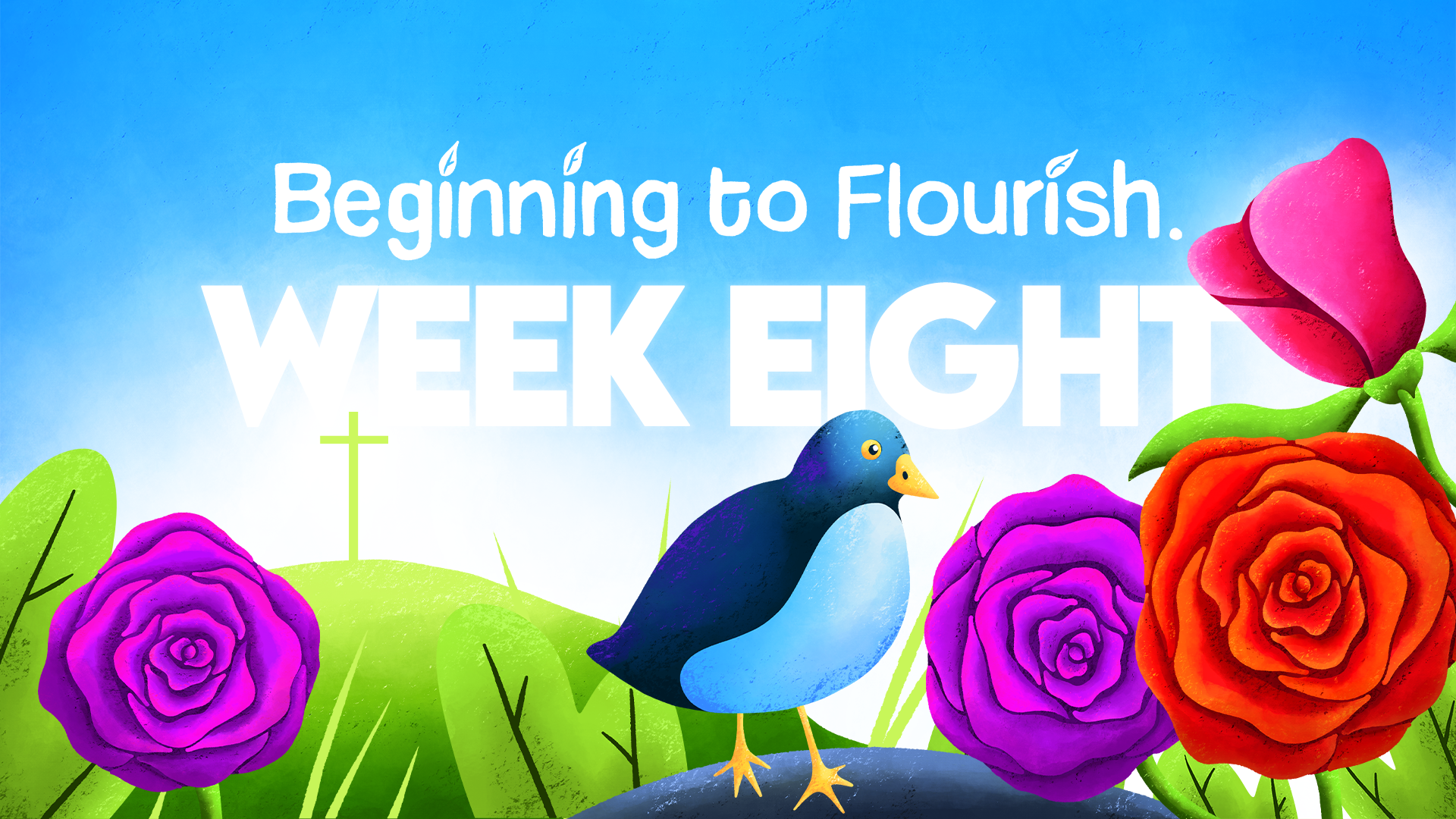
Jesus the Vine — becoming branches ourselves — Easter!
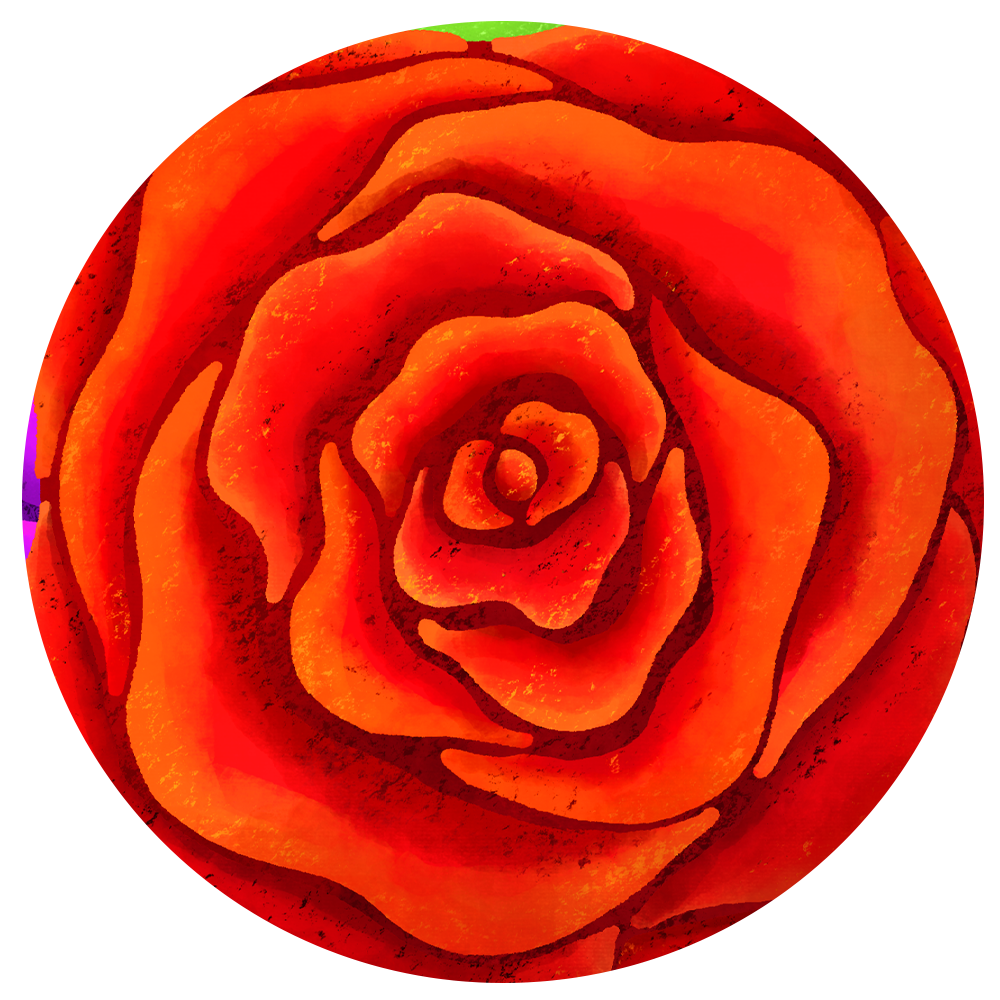 Love has been stripped bare, but Jesus the vine still rooted deep in love bursts back into life! Love will flourish! As we look around the garden this Easter with our Father God the Gardener — let’s look to the vine — Jesus — that runs through everything and be the branches that reach out widely under the rising and the setting of the sun. We breathe in, drink deeply, stand together in an arbour. It is not the beginning of the end. It is only the end of the beginning. It is time to flourish.
Love has been stripped bare, but Jesus the vine still rooted deep in love bursts back into life! Love will flourish! As we look around the garden this Easter with our Father God the Gardener — let’s look to the vine — Jesus — that runs through everything and be the branches that reach out widely under the rising and the setting of the sun. We breathe in, drink deeply, stand together in an arbour. It is not the beginning of the end. It is only the end of the beginning. It is time to flourish.
SEEDS TO SOW: This week consider how you can support individuals and organisations that work to show Jesus’s compassion and care in the world.
Read John 20: 1-18
‘Supposing him to be the gardener…’
The resurrection of Jesus is the new beginning for humanity. He becomes the new Adam and we find ourselves once again with Mary feeling the breath of the Holy Spirit, revealing to us a new future. As the Holy Spirit continues to work in our lives — what does the future hold for us this Easter?
And isn’t there something interesting going on here in this conversation between Mary and Jesus? In verse 15 the son of the Gardener is mistaken for the Gardener (Jesus called his Father the Gardener in John 15 in our reading opposite!). What do you think Jesus was doing that made it plausible for Mary to think he was the gardener? Perhaps it’s just because he was a man in the garden, but what if Jesus had been doing some weeding, or otherwise tending to the plants? How do you picture the scene that Easter morning as love blossoms anew?
Read John 15: 1-17
Loving branches.
So perhaps Mary was on to something when she supposed Jesus to be the gardener! How does the metaphor of gardening help us think about the Father, Son, and Holy Spirit and their relationship to us?
If Jesus is the vine and we are the branches — we are in some sense bundled up in an extension of the divine — our lives are a human outworking of God’s Kingdom and heavenly purpose. How do we get our heads around that?
As branches Jesus calls us to love one another as he has loved us. We are loving branches of his vine, reaching ever outwards. What can we do today to shelter and shade those who need it today?
Read Leviticus 19: 10
Respecting the vineyard…
We often want to maximise profit, efficiency, and extraction of natural resources at the expense of those resources and of one another. God challenges us to see things in a different way. We are all connected! What are the principles that should guide the way we use the limited natural resources in the world?
How can we support those in developing countries who depend on harvesting the resources of the natural world, (so that they can survive), to do so without destroying the earth’s eco system? What changes to our lifestyles are required to produce a more equitable world?
Lent Transformations Conclusion
The Transformed Tomb
Picture the empty tomb. Picture the friendly ‘Gardener' looking on, a smile playing across his face.
Rejoice, eat, celebrate, treat yourself and others! Sing glory and hallelujahs to God!
Let’s flourish!
He is risen!
Week Nine
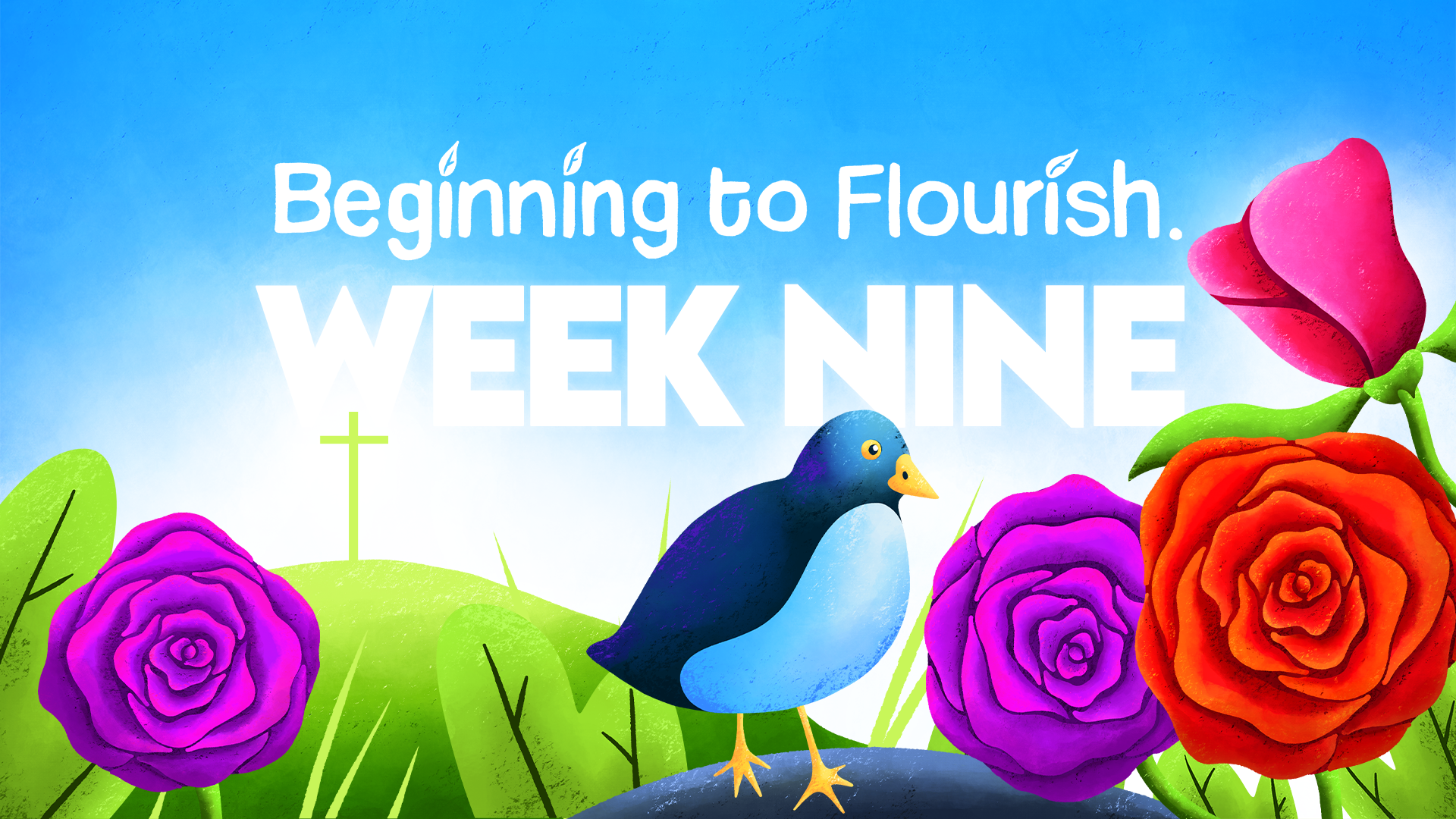
Flourishing Together — reflecting on living so that all may flourish
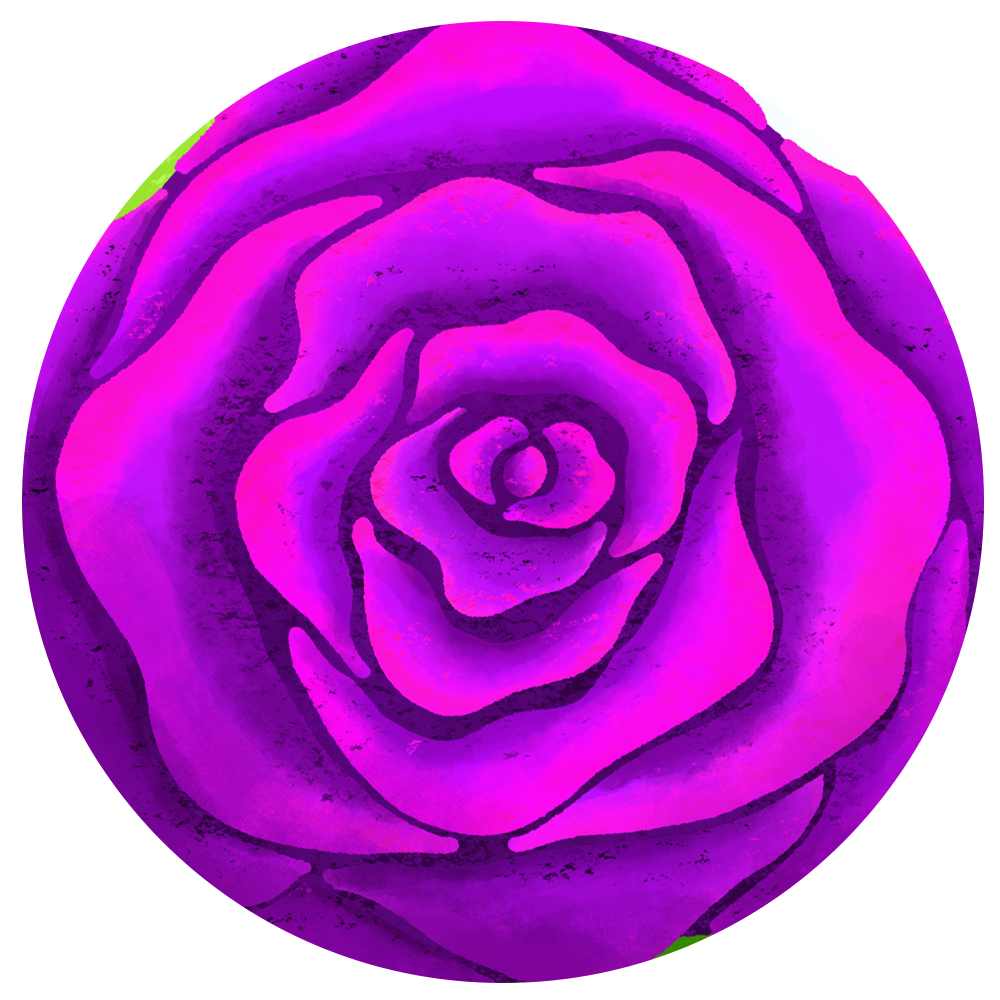 Our Father the Gardener, invites us to be apprentice gardeners — helping one another to flourish. We have contributions to give — working for hope, restoration and righteousness — alongside the Ultimate Gardener. As we work as apprentice gardeners we find that in the flourishing of one another we are nourished, in the nurturing of our neighbour, we ourselves blossom too.
Our Father the Gardener, invites us to be apprentice gardeners — helping one another to flourish. We have contributions to give — working for hope, restoration and righteousness — alongside the Ultimate Gardener. As we work as apprentice gardeners we find that in the flourishing of one another we are nourished, in the nurturing of our neighbour, we ourselves blossom too.
SEEDS TO SOW: This week consider how you can support organisations working towards fair, compassionate and just solutions to the problems that face our global environment.
Read Ephesians 3: 16-21
Rooted in love…
Having read this passage what are you inspired to attempt to do for the glory of God — rooted as you are in love!
And how can we begin to be the agents enabling others to see their gifts to grow in God’s garden?
Read Amos 9: 13-14
A restoration-people following a God of restoration.
Too often as Christians we read the prophets of the Hebrew Scriptures in such a way that we spiritualise their prophecies. So we look at this passage in Amos and relate it to spiritual growth. We believe that God will restore and build his coming Kingdom. But what if God is using these words to call us to help physically build a more equitable world here and now?
Where can we plant gardens and vineyards and rebuild ruins?
Could it be that areas of God’s garden lie untended because we have failed to encourage others to get involved in creating and growing fruit bearing plants in the rich soil of God’s love and grace? How can we spur one another on?
Read Luke 10: 25-37
Coming full circle…
We began at the start of Lent thinking about the fundamental things we need so that from that basis we could consider what it means to flourish. The wounded, abandoned, shaken soul in this story needed to get his breath back, to have something to drink, to be given a shelter, and be restored to a community. So that’s exactly what the Samaritan did.
And those are the same things all us wounded, abandoned, shaken souls need. How do the words of Jesus , “Go and do likewise” make you feel? How can we go about doing “likewise” in our day to day life? This is how we act as apprentice gardeners — gently nurturing one another in a Kingdom that flourishes one shaken soul at a time.
In today’s busy world of instant achievement we often don’t leave enough time for others around us to flourish. Flourishing takes time. And it requires nourishment and encouragement. What are the qualities required of a community, or a family, or an individual that wants to flourish?




